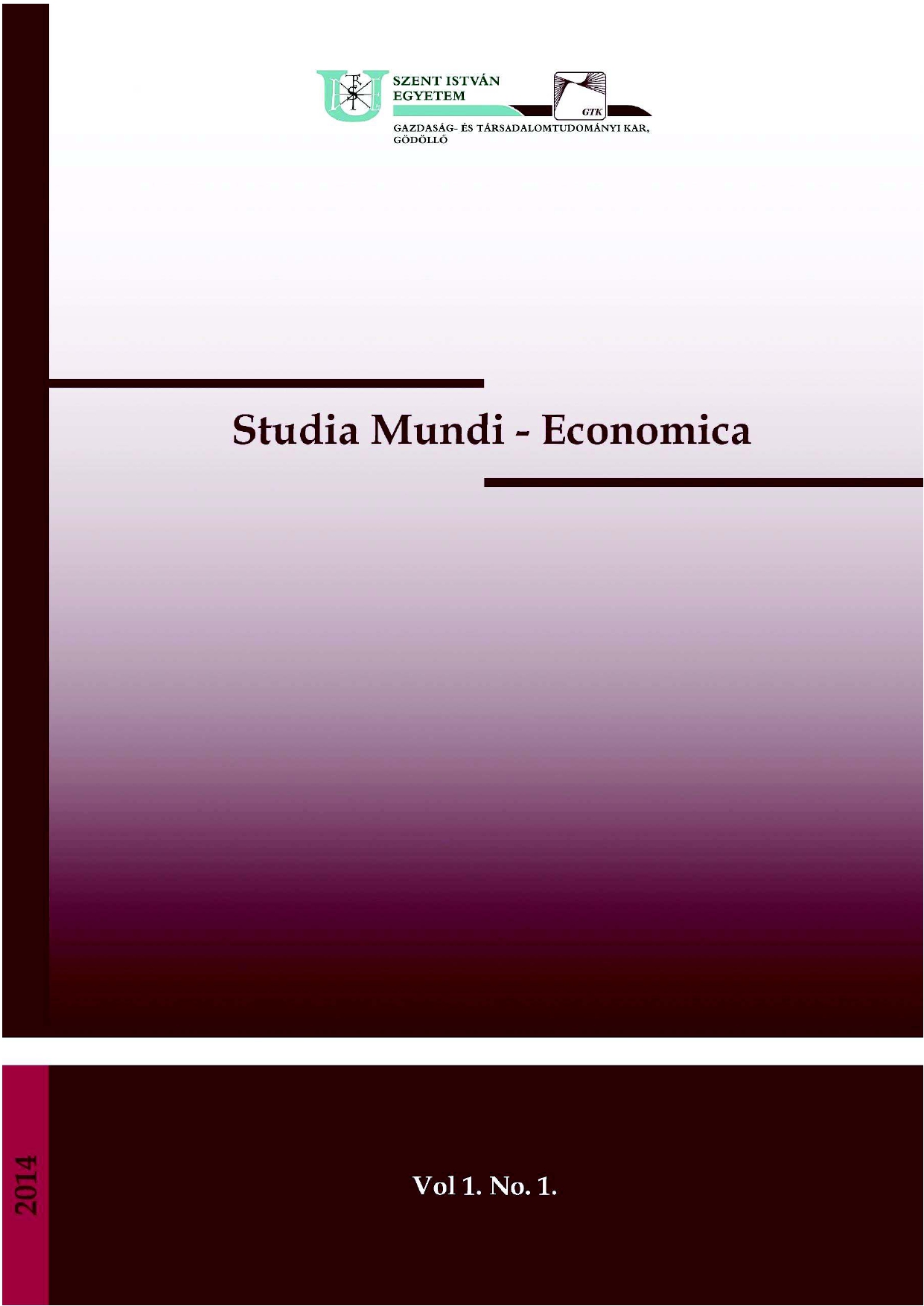Income inequality in low-income countries: reasons and fundamental solutions
DOI:
https://doi.org/10.18531/Studia.Mundi.2014.01.01.98-102Schlagwörter:
Inequality, GINI, Kuznets curve, Lorenz curve, PovertyAbstract
This paper presents the problem of unequal distribution of income in low-income countries - according to classification of World Bank - through introducing and heavily reviewing theoretical and empirical studies. Exploring the reasons of income inequality in those countries one must assert that there are complex interactions between past and present and between the diverse political, economic and social processes, cultural values, national and external factors and institutions. Keeping in mind all these aspects of historical interaction, many scholars, researchers and policy makers suggest apparent solutions for concerning issue that are , briefly, taxing the poor less, taxing the rich more, and providing more social services for the poor, working, and middle social classes.
Literaturhinweise
Amiel, Y. Frank, A 1998. Thinking about Inequality: Personal Judgment and Income Distributions, London School of Economics, Ruppin Institute, Israel DOI: http://dx.doi.org/10.1017/CBO9780511492266.007
Atkinson, A. 1970. "On the Measurement of Inequality". Journal of Economic Theory 2: 244–63. Retrieved 19 March 2013.
Atkinson, A.Bourguignon, F. ed. 2000. Handbook of Income Distribution, v. 1 Elsevier B.V. DOI: http://dx.doi.org/10.1016/S1574-0056(00)80003-2
Berg G., Ostry. D. 2011. Inequality and Unsustainable Growth: Two Sides of the Same Coin? | IMF STAFF DISCUSSION NOTE | April 8. DOI: http://dx.doi.org/10.5089/9781463926564.006
Clark J. 2008. "The impact of economic growth, tax policy and economic freedom on income inequality - Conclusions", The Journal of Private Enterprise 24(1), 23-31
Deininger, K. Squire, L. 1998. Journal of Development Economics 57 (2), "New Ways of Looking at Old Issues: Inequality and Growth". 259–287. DOI: http://dx.doi.org/10.1016/S0304-3878(98)00099-6
Flemming, J. 1999. “Income Distribution, Economic Systems and Transition”, Oxford; Wadham College, p. 40; May.
Kaasa, A. 2003. “Factors influencing income inequality in transition economies”, Journal of Transforming Economies and Societies, p.11-15
Laurence D. 2007. Calculus For Business, Economics, and the Social and Life Sciences, p. 421
Musaeva D.A. 2011. Formation strategy for development of agro processing complex in KR under globalization and underlying challenges; Alatoo Academic Studies, Bishkek, Kyrgyzstan, p 35.
Novotny, J. 2007. “On the measurement of regional inequality”, The Annals of Regional Science, Volume 41, Issue 3, pp 563-580
World Institute for Development Economics Research Database, World Income Inequality Database V2.0c May 2008
Downloads
Veröffentlicht
Ausgabe
Rubrik
Lizenz
Copyright (c) 2014 Sanzharbek Mavlianov

Dieses Werk steht unter der Lizenz Creative Commons Namensnennung - Nicht-kommerziell - Keine Bearbeitungen 4.0 International.
A folyóirat Open Access (Gold). Cikkeire a Creative Commons 4.0 standard licenc alábbi típusa vonatkozik: CC-BY-NC-ND-4.0. Ennek értelmében a mű szabadon másolható, terjeszthető, bemutatható és előadható, azonban nem használható fel kereskedelmi célokra (NC), továbbá nem módosítható és nem készíthető belőle átdolgozás, származékos mű (ND). A licenc alapján a szerző vagy a jogosult által meghatározott módon fel kell tüntetni a szerző nevét és a szerzői mű címét (BY).






